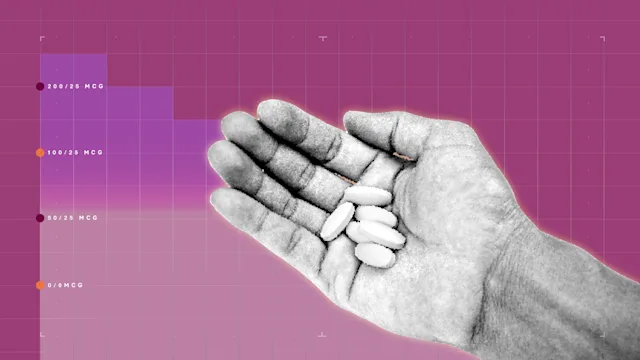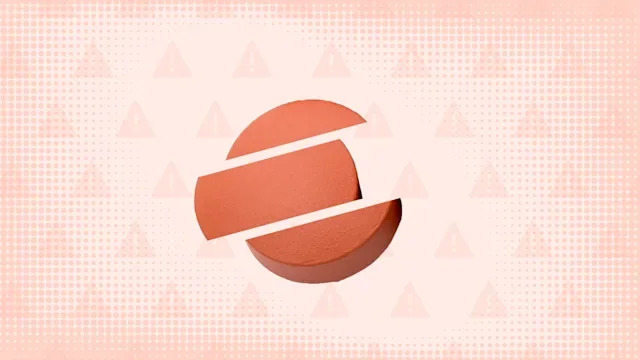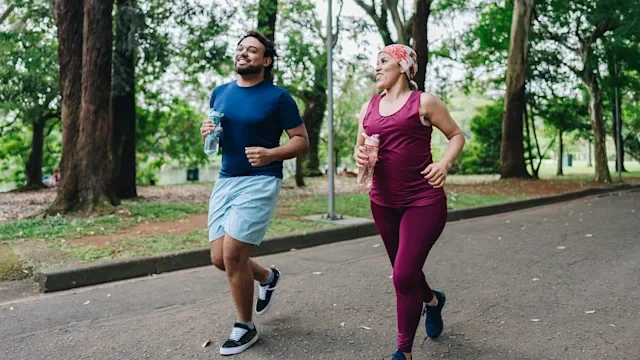Key takeaways:
A heart stress test shows how well your heart pumps blood to the rest of the body when it’s under stress — like during physical activity.
During a stress test, you will walk on a treadmill or get medication to stress your heart. A doctor or technician will track your blood pressure, heart rate, and electrocardiogram (ECG).
An abnormal result on a heart stress test means that you might be at risk of a heart attack. You’ll need more tests to look for blockages in the arteries that supply blood and oxygen to the heart.
Stress can uncover weaknesses that we work hard to cover up. When times are good, cover-ups can work just fine. But when the going gets tough, that’s when things can start to go wrong. This is true of individuals, relationships, systems, and body organs. And it’s part of the idea behind a heart stress test — to put the heart under stress to identify what may not be immediately apparent. While it may not seem like a great idea to intentionally stress your heart, there’s a safe and purposeful way to do just that.
Your doctor may recommend a heart stress test if you’re having chest pain or shortness of breath. A heart stress test shows how your heart responds to increased work — such as walking on a treadmill. Let’s explore what a stress test is and what it can tell you about your heart health.
Why would you need a stress test?
You might need to have a heart stress test to:
Help diagnose heart conditions like coronary artery disease and heart rhythm problems
Check if treatment for certain heart problems is working
Check the heart before surgery to make sure it is strong enough to undergo anesthesia
Help your doctor prescribe a safe exercise program for you
Types of stress tests
There are two main ways to stress the heart during a stress test:
1) Exercise: such as walking on a treadmill or pedaling an exercise bicycle (most common)
2) Medication: increases the blood flow to your heart, and makes the heart work harder — similar to when you exercise
There are also several different ways to monitor the heart during the stress test, such as with an ECG, echocardiogram, nuclear imaging, or MRI. The best stress test for you will depend on your own health and what is available in your area. Let’s review the two main types of stress tests and the ways in which they are monitored.
1) Exercise stress testing
Exercise stress testing is the best kind of stress test since it’s the most natural way to work your heart. Types of exercise stress tests can include:
Exercise ECG: In this stress test you exercise on a treadmill or exercise bicycle. A doctor or technician will watch your heart rate, blood pressure, and ECG.
Stress echocardiogram: This is similar to an exercise ECG stress test, but you will also have an echocardiogram before and after you exercise to monitor the function of your heart under stress.
Nuclear stress test: This is also similar to an exercise ECG stress test, but it uses an IV radioactive dye for special imaging of the heart before and after exercise.
Read more like this
Explore these related articles, suggested for readers like you.
2) Medication (pharmacological) stress testing
You may need a different kind of stress test that uses medication instead of exercise. This might be the case if you’re unable to exercise or if you have an ECG abnormality, which can be caused by a pacemaker, for example. A nurse will give you medication through an intravenous line (IV) that makes the heart work harder, as if you were doing physical exercise. Types of pharmacological stress tests include:
Dobutamine echocardiogram: A nurse will give you an IV medication called dobutamine to speed up your heart rate. A technician does echocardiograms during the test to check your heart's function.
Pharmacological nuclear stress: A nurse will give you an IV medication that expands the blood vessels (a vasodilator). A nuclear camera will take pictures of your heart. Sometimes, if you are able, you will do gentle exercise during the exam to lessen the side effects of the vasodilator medication.
Stress cardiac MRI: A nurse will give you either dobutamine or a vasodilator medication, and an MRI machine will take pictures of your heart.
How should I prepare for my stress test?
You may receive a list of instructions before your stress test. These may include things like:
Do not eat, drink, or smoke for at least 3 hours before the test.
Do not consume caffeine products (coffee, tea, soda) 24 hours before the test.
Wear comfortable clothes and shoes so that you can walk safely on a treadmill during the test. Do not wear flip-flops or backless shoes.
You might be asked not to take certain medications the morning of the test (such as beta blockers).
Remember to ask your doctor’s office if they have a list of instructions for you to follow before your stress test — and how to take your medications before and after your stress test.
How and where is a stress test done?
A stress test can be done either in a hospital or outpatient clinic setting. A technologist, nurse, and/or physician will be in the room to supervise the stress test.
First, trained staff will place leads (wires) on your chest to track your heart rate and ECG during the test. You will have a blood pressure cuff placed around your arm to measure your blood pressures. You may breathe through a tube during the test to give more information about your lungs.
A technician may take pictures of your heart using an echocardiogram or nuclear camera before you start to exercise.
Doing an exercise stress test
If you’re having an exercise stress test, you will step onto a treadmill or sit on an exercise bicycle. The technician will start the treadmill or bicycle at a slow speed. The treadmill will then speed up and start to tilt, so it feels as though you’re walking up a small hill. The bicycle will increase in resistance. The goal of the test is to get your heart rate working to a target heart rate for your age group.
Exercise continues until the test is complete, or you alert the staff that you need to stop. It’s important that you report all symptoms you experience during the test. This includes chest pain, shortness of breath, dizziness, leg pain, and fatigue.
Doing a medication stress test
If you’re having a medication stress test, a nurse or technician will place an IV in your arm to give you medication. The medication may make you feel like you’re exercising, as it makes your heart work harder. You might also experience some of the following symptoms:
Shortness of breath
Flushing
Headache
Chest discomfort
Dizziness
Palpitations
If you get symptoms from the medication, they’re usually temporary. It’s important to report these symptoms to the staff performing the test. A technician will take pictures of your heart with an echocardiogram, nuclear camera, or MRI at various stages of the test.
After the stress test
After your exercise or medication stress test, you will stay a short time to make sure your heart rate and blood pressure normalize. It usually takes a few days for the doctor to review your test and make a report.
Understanding your stress test results
A stress test report usually contains the following information:
Your blood pressures and heart rates before, during, and after exercise or medication
The amount of time you were able to exercise
Any symptoms you had during the test
A description of your ECG during the stress test, and if there were abnormal changes
A description of your imaging results, and if there were abnormalities that could mean a problem with the heart's blood flow
If the test is normal, meaning that the blood flow of your heart is normal, you likely won’t need further testing. If the test is abnormal, you may need more testing on your heart.
What happens if your cardiac stress test is abnormal?
If the test is abnormal, you may need a different kind of stress test or a cardiac catheterization to make sure you don't have blockages in your heart arteries. A stress test report has a lot of medical jargon, so it can be confusing. That is why it’s important to make an appointment with your doctor to discuss what your stress test results mean for you.
Can you get a heart attack from a stress test?
Although a stress test can cause a heart attack, it's very rare. Only 1 in 10,000 patients have a serious complication from an exercise stress test — such as heart attack, arrhythmia, or death. Your healthcare team will review your medical history and symptoms to make sure that a stress test will be safe for you.
The bottom line
A heart stress test is a very safe way to measure how your heart responds to an increased workload. It can diagnose many heart problems, including heart artery blockages and arrhythmias. It can also show if your heart is strong enough to handle anesthesia for surgery or to start a new exercise program. If your stress test is abnormal, it could mean that you need more testing on your heart.

Why trust our experts?


References
American Heart Association. (2015). Cardiac catheterization.
American Heart Association. (2015). Coronary artery disease — coronary heart disease.
American Heart Association. (2015). Exercise stress test.
American Heart Association. (2021). Target heart rates chart.
Gopal, S., et al. (2021). Nuclear medicine stress test. StatPearls.
Hamirani, Y., et al. (2013). Advances in stress cardiac MRI and computed tomography. Future Cardiol.
Lak, H., et al. (2021). Pharmacologic stress testing. StatPearls.
MedlinePlus. (2021). Arrhythmia.
MedlinePlus. (2021). Stress echocardiography.
Vilcant, V., et al. (2021). Treadmill stress testing. StatPearls.

















